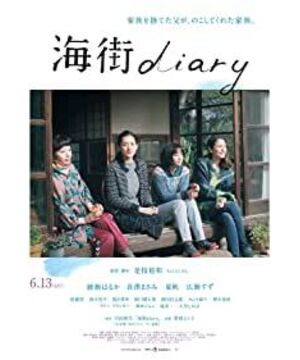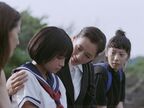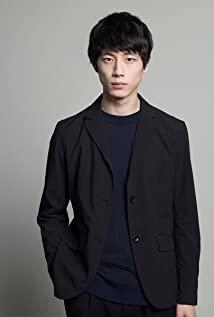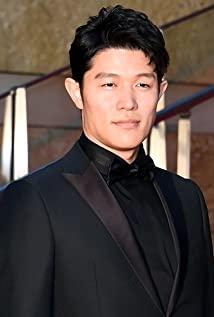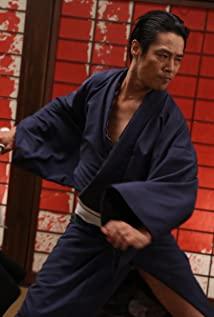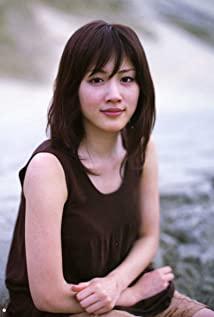However, after watching this movie, it feels sensational on the whole. Just like watching "The Etiquette Sonata" that year, the Etiquette Sonata won the best foreign language film award. However, the film was also a bit sensational, but it chose a tricky theme. Very brilliant.
Among the several movies I have watched are Hirokazu Ee, the most exciting one is "Non-stop". It is short and squishy, and looks meaningless, but it has a long aftertaste. If you take Ozu and Yoji Yamada as references, this is the best of Hirokazu. A work close to the masters, and "Father Like Son" is a successful commercial film like this "Haijie Diary".
The excitement of "Non-stop" is to listen to thunder in a silent place. For the West, the suppression and release of their feelings by Eastern women are very amazing. The conflicts and manifestations between husband and wife and between father and son are both cosmopolitan and oriental. The father cheated on his wife when he was young, and the wife endured heavy burdens for the sake of family harmony. He hid this secret for decades and suppressed it for decades. It was not until the children had grown up and the husband had grown old and the husband had grown old. come out. The son's rebellion against his father has never been reconciled. The few lines of dialogue are full of tension. Between mother-in-law and daughter-in-law, between mother and daughter, and between father and son, the two generations of men and women have different choices and completely different lives. The daughter-in-law is a divorced and remarried (and remarried with her son), and the daughter is a little lazy and greedy petty citizen. There is also an unappeared eldest son who died of drowning because of rescuers. This is actually a film that reflects the conflict between two generations, and Japanese traditional culture is slowly moving forward in this conflict. In contrast, Yamada Yoji's remake of "Tokyo Family" is even better.
"The Diary of the Sea Street" is because the story is too TVB and the performance results are greatly reduced. It will make people feel that it is beautiful and not true enough. If the movie is a dream, then this is a beautiful dream. Everyone is so perfect and self-consistent, both the living and the dead. Sisters watch the moon together, make plum wine, make curry rice with fried tempura, and walk on the beach together. , Support and encourage each other. But life is not a dream. If I believe it is real and I am moved, how can I explain the high suicide rate in Japan? Not every death is as beautiful and regrettable as the cherry blossoms wither.
The father who didn't show up was kind and couldn't refuse and cheated, which led to the breakdown of the family. The eldest sister who took over the whole family also fell in love with his married colleague. It is undeniable that this setting is as clever and profound as "Non-stop", but Hirokazu Kee's path of director seems to be going further and further in a mediocre direction.
However, I still strongly recommend this "Haijie Diary" for only one reason: it is so good-looking, eldest sister Ling Laiyao's tenacity, second sister, long-straight-ya-mei (sorry, Changsawa Yamei) simplicity , Kindness, the housemaid's third child, and the little sister, each is different, each is the beauty of a different age group. Naturally, Japan’s cherry blossoms are beautiful, the warm and quaint traditional old house (like the home that appeared in "Non-stop").
In fact, you rarely see it in Japanese movies, or feel dirty and ugly, even if the opening of "Shinjuku Incident" takes place in the sewers, with a big city as the background, in a bloody movie that contains gang rush. It is also neat and tidy. Needless to say, those Japanese villages are really free to look up, and the beautiful scenery is not exaggerated at all. In this movie, Kamakura, a seaside town, is quiet and peaceful. There is a train with only one carriage rumbling over once a day, boarding and alighting one or two passengers, and then driving away from Kata Kata. The sunlight filled the narrow railway with green trees and flying cherry blossoms.
View more about Our Little Sister reviews


